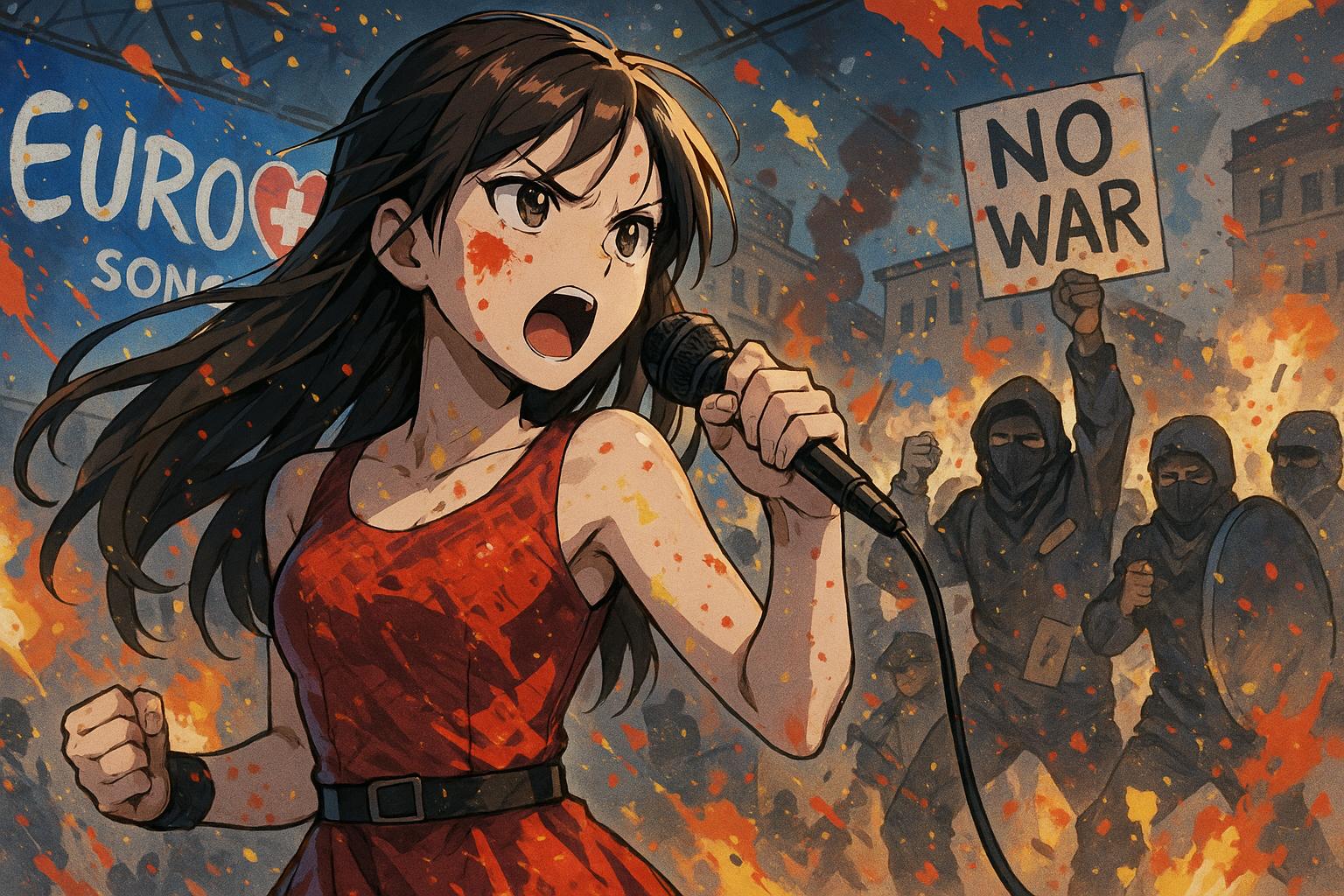A recent incident at the Eurovision Song Contest underscored the tumultuous intersection of culture and politics, as a crew member was struck with paint during a staged disruption aimed at Israeli singer Yuval Raphael while she performed her song "New Day Will Rise" in Basel. This occurred against the backdrop of escalating tensions surrounding Israel’s participation, which has sparked a wave of pro-Palestinian protests in response to the ongoing humanitarian crisis in Gaza.
Raphael's performance was briefly interrupted when two individuals attempted to breach security barriers. Although they were quickly subdued and escorted from the premises—one throwing paint that hit a crew member—no injuries were reported. A spokesperson for the Swiss broadcaster SRG SSR confirmed the swift response and stated that the two protestors were handed over to police, who later released them without charges. The tension was palpable, as scenes of protest unfolded just outside the St Jakobshalle venue. Demonstrators clashed with police, resulting in the use of tear gas and a water cannon to disperse crowds protesting Israel’s involvement amidst a backdrop of increased violence and military action in Gaza.
The atmosphere in Basel is not an isolated incident but part of a larger narrative concerning Israel’s participation in international cultural events. In the wake of the October 7 attack by Hamas, which resulted in substantial loss of life in Israel, and Israel's subsequent military response that has led to tens of thousands of casualties in Gaza, Raphael’s role as an Israeli representative is intensely scrutinised. Activists have questioned the ethics of Israel's inclusion in the contest, particularly when other nations, such as Russia, have been barred from participation due to geopolitical conflicts. This disparity raises concerns about the perceived double standards in the application of Eurovision’s apolitical stance.
Despite the tumult, Yuval Raphael has expressed her commitment to conveying positivity through her music. Speaking to media before her performance, she acknowledged the duality of her experience—surviving the horrific violence at the Nova music festival and facing protests against her participation. In her pursuit of hope and love with her song, she strives to connect with audiences worldwide, drawing attention to the power of music even in times of strife.
Previous related events, including protests during rehearsals, have intensified security measures and heightened the visibility of activists advocating for Palestinian rights. These developments have also spurred discussions within the Eurovision community itself, with some former contestants and national broadcasters advocating for Israel’s exclusion from future contests. The European Broadcasting Union, which oversees Eurovision, has defended its decision to allow Israel to compete, maintaining that the contest should remain a platform for uniting diverse cultures rather than a reflection of political conflicts.
As protests continue to be a fixture at Eurovision events, the contest finds itself grappling with the fine line between music and the political realities of the world. While the EBU has attempted to create a non-political space, the passionate responses of protesters reflect a growing discontent with the perceived complicity of cultural platforms in ongoing geopolitical struggles.
The unfolding drama around Eurovision serves as a reminder of how deeply music and politics can intertwine, eliciting strong reactions and sparking debates that transcend borders. As artists like Raphael continue to navigate these complexities, the conversation around art, representation, and accountability will remain crucial in understanding the evolving landscape of international cultural events.
Reference Map
- Paragraph 1: Sources 1, 2
- Paragraph 2: Sources 1, 3
- Paragraph 3: Sources 2, 4
- Paragraph 4: Sources 3, 6
- Paragraph 5: Sources 2, 5
- Paragraph 6: Sources 3, 4, 6
- Paragraph 7: Sources 1, 2, 4
Source: Noah Wire Services
